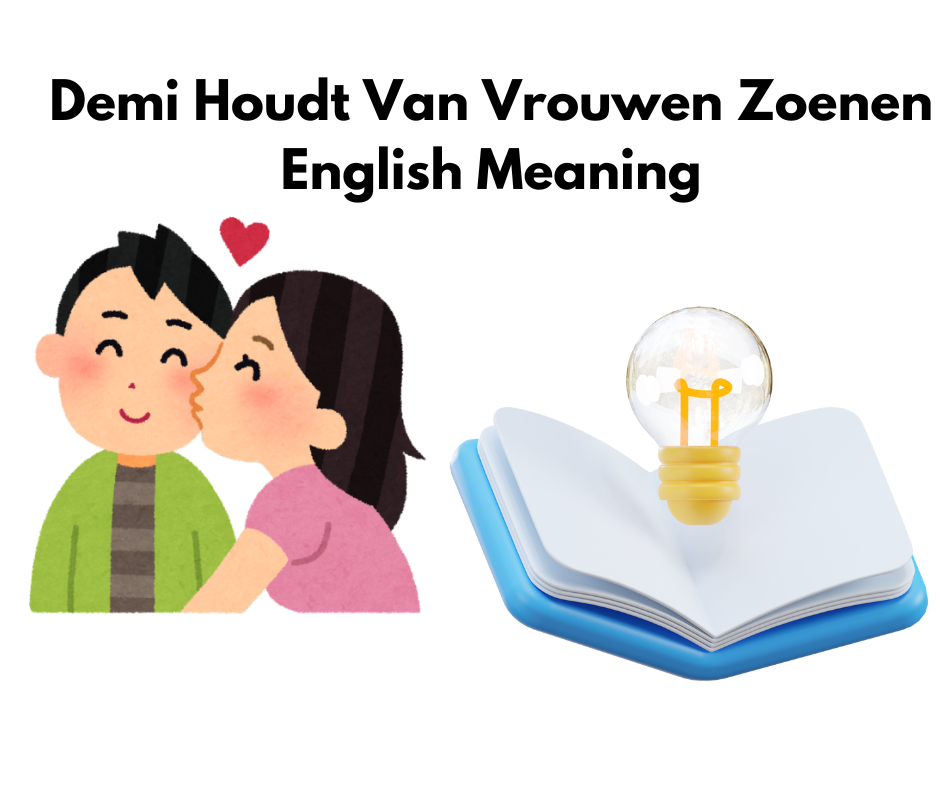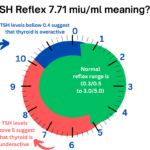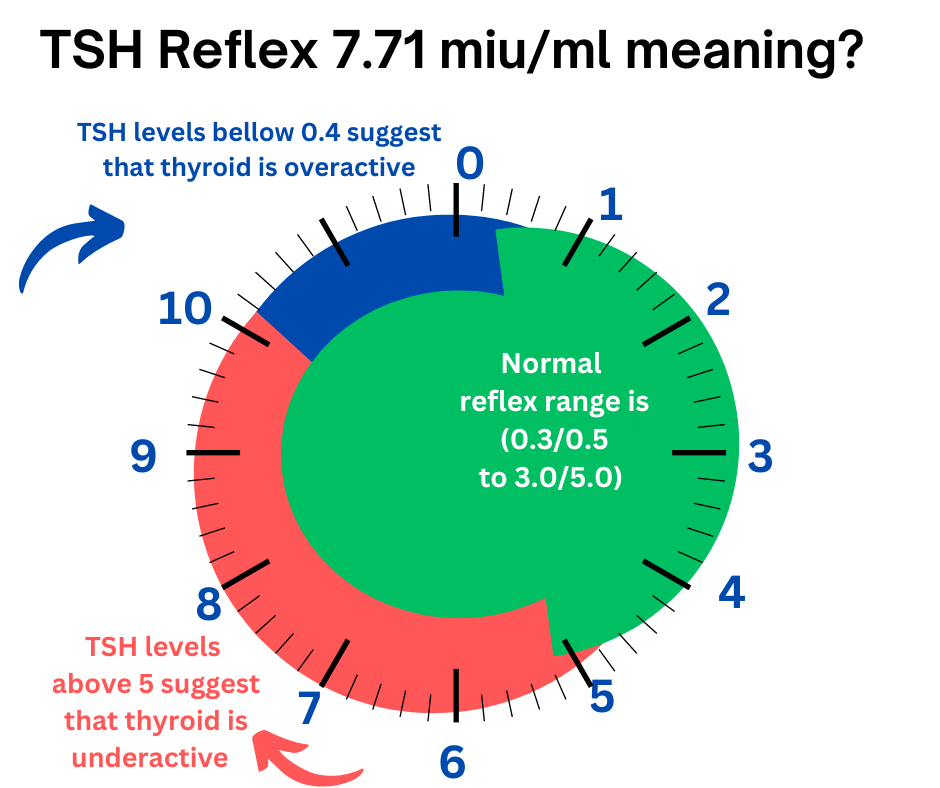Demi Houdt Van Vrouwen Zoenen English Meaning: Understanding the Phrase
Understanding the Phrase: “Demi houdt van vrouwen zoenen” and Its English Meaning
The Dutch phrase “Demi houdt van vrouwen zoenen” meaning “Demi loves kissing women” in English.
Let’s break this phrase down step by step to understand it better:
| Demi: | This is a name. It can stand alone as a name or be short for something longer, like Demetria orDemetrius. In this phrase, it’s simply referring to a person named Demi.
|
| Houdt Van: | This part means “loves” or “likes.” It’s the Dutch way of saying someone loves or is fond of something. The verb is “houden van,” and it’s similar to how we say “love” in English.
|
| Vrouwen: | This is the Dutch word for “women.” The singular form “vrouw” means “woman,” but here it’s plural, meaning “women.”
|
| Zoenen: | This word translates to “kissing.” It’s the verb form, so it means “to kiss.” |
When you put it all together, the phrase means: “Demi loves kissing women.”
Exploring the Term “Demi”
In this sentence, “Demi” is a name. Demi could be short for a longer name like Demetria or Demetrius, but it can also be used as a name by itself. It’s a name that can be used in both Dutch and other languages. In this phrase, it refers to a person named Demi who has an affectionate feeling towards women.
Cultural Interpretation
In Dutch culture, showing affection through kissing is quite normal and widely accepted. The Dutch people are known for being open-minded and liberal when it comes to relationships and love. This includes being open to same-$ex relationships. Public displays of affection, such as kissing, are generally accepted in the Netherlands.
When it comes to the phrase “Demi houdt van vrouwen zoenen,” it reflects the Netherlands’ openness to people expressing affection, regardless of whether the relationship is same-$ex or not.
Linguistic Breakdown
Grammatically, this Dutch sentence follows the same structure as many other sentences:
| Subject: | “Demi” (the person) |
| Verb: | “houdt van” (loves or likes) |
| Object: | “vrouwen zoenen” (kissing women) |
The verb houden van is commonly used in Dutch to express feelings of love or affection, much like we use “to love” in English. The word zoenen means kissing, so it adds to the affectionate nature of the phrase.
Social Implications
The Netherlands has been a global leader in promoting LGBTQ+ rights. In fact, it was the first country to legalize same-$ex marriage, back in 2001. Because of this, expressions like “Demi houdt van vrouwen zoenen” are not seen as unusual or controversial in Dutch society. The Netherlands values equality and openness, and this phrase reflects that attitude toward same-$ex relationships.
Comparative Analysis
You can find similar phrases in many languages. For example, in English, someone might say: “Demi loves kissing women.” The structure and meaning of the sentence remain similar, although how people react to it might vary depending on the country or culture.
Some countries are more accepting of LGBTQ+ relationships, while others might not be as open. However, phrases like this usually mean the same thing across different languages.
Media Representation
In Dutch media, LGBTQ+ relationships are generally portrayed in a positive light. This has helped Dutch society become more accepting of different types of relationships. Many famous Dutch celebrities are openly part of the LGBTQ+ community and are celebrated in the media. Because of this, people in the Netherlands are more likely to see same-$ex relationships as a normal and accepted part of life.
Psychological Perspectives
From a psychological point of view, expressing affection, like kissing, is a normal human behavior. It’s part of how we show our feelings to others. Psychologists have studied love and attraction for years, and they agree that same-$ex attraction is a natural variation of human $exuality.
People express love and affection in different ways, and how society views these expressions can affect how comfortable people feel showing them. In the Netherlands, where LGBTQ+ rights are protected, people can express their feelings more freely.
Legal Aspects
The legal system in the Netherlands strongly supports LGBTQ+ rights. Dutch law allows same-$ex couples to get married, adopt children, and protects them from discrimination. These laws help ensure that everyone has equal rights and can express their love without fear.
Because of this, a phrase like “Demi houdt van vrouwen zoenen” is not just a simple statement of affection. It also reflects the legal protections and social acceptance that LGBTQ+ people have in the Netherlands.
Spring Water: A Natural Element
Water has often been symbolic of purity, life, and healing in many cultures. Spring water, in particular, flows naturally from the earth and is considered one of the purest forms of water. It’s found in many sacred springs, which are often connected to religious or cultural rituals. The purity of spring water is seen as a reflection of the divine or spiritual connection to nature. In ancient times, many believed that drinking or bathing in spring water could cleanse both the body and the soul.
FAQs
1. What does “Demi houdt van vrouwen zoenen” mean? |
|
2. Is this phrase common in Dutch culture? |
|
3. Is “Demi” a common name? |
|
4. How does Dutch society view same-$ex relationships? |
|
5. What is the legal status of LGBTQ+ rights in the Netherlands? |
|
Final Words
At the end of this discussion, the phrase “Demi houdt van vrouwen zoenen” reflects both the cultural openness and legal protections for LGBTQ+ individuals in the Netherlands. It’s a simple yet powerful expression of love and affection that mirrors the broader acceptance of same-$ex relationships in Dutch society.
For further details you can search our website hookstap related to meanings of anything. I hope you understand better about this Demi Houdt Van Vrouwen Zoenen English Meaning 🙂 Happy reading 🙂
Share this content:










Post Comment